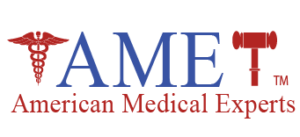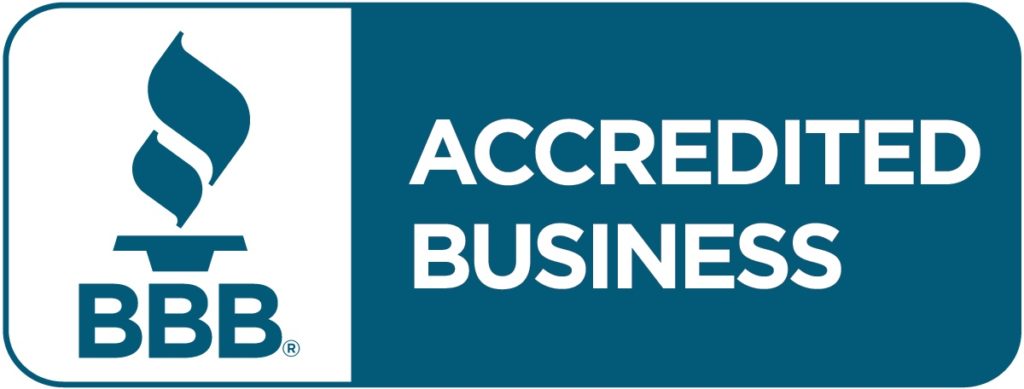The Benefits of a Physician Assistant Expert Witness
Physician Assistants have been involved in the American Health Care Systems for over forty years. The American Academy of Physician Assistants was founded in 1968 as the official body representing the profession with a mission “to provide quality cost-effective, accessible health care and to promote the profession and personal development of physician assistants”. There are more than 140 physician assistant programs in the United States. The U.S. Bureau of Labor Statistics (BLS) projected that physician assistant employment opportunities will grow 50% by 2014. This will make it the fourth fastest growing profession in the country
Physician assistants are either licensed or registered in every state in the union including Puerto Rico, Guam the District of Columbia and the Virgin Islands and have prescriptive authority in every jurisdiction. Forty‐four states allow PAs to prescribe controlled substances. PAs are required to register with the Drug Enforcement Agency and possess a valid DEA number to prescribe controlled medication.
The U.S. Bureau of Labor Statistics (BLS) projected that physician assistant employment opportunities will grow 50% by 2014. This will make it the fourth fastest growing profession in the country. As the profession continues to mature and its contribution in the medical arena expands the need for physician assistant expert witnesses is also expected to increase.
Expanding Scope of the Physician Assistant Profession:
At its initial inception, the physician assistant was envisioned as an extension of the general practitioner. However, this is far from the role of the physician assistant in today’s Health Care System. Today PAs practice in every medical specialty. Recently the National Commission of the Certification of Physician Assistants announced that applications for “Specialty Certificates of Added Qualifications” (CAQs) are being accepted. There are presently five areas open for CAQs: Cardiovascular/Thoracic Surgery, Emergency Medicine, Nephrology, Orthopedic Surgery, and Psychiatry.
Visit the National Commission on Certification of Physician Assistants website www.nccpa.net for the requirements individual physician assistants must fulfill to achieve these advanced certificates.
Role of the Physician Assistant and the Physician Assistant as an Expert Witness:
Generally, when a medical malpractice case involves a physician assistant, the attorney will need a physician assistant with the same or similar clinical experience as the physician assistant whose care is at issue. There are some jurisdictions that will permit a physician to offer the standard of care opinions concerning physician assistants if they have employed, worked with, supervised or taught physician assistant students.
The standard of care requires that the physician assistant provide any task delegated to him at the same level of competency as the delegating physician. Despite the fact that this standard must be equal for both providers a PA may not, simply by the nature of his dependent provider status, offer expert testimony concerning the standard of care of a physician.
Physician Assistants are generally retained by counsel concerning the standard of care. Occasionally causation opinions are requested and permitted by the court.
It can be of benefit for counsel to retain a physician assistant (or any expert) in the early stages of a case. Many times I have been retained as the deadline for designating experts is fast approaching, therefore the issues of the case have been framed, pleadings and motions filed and discovery is in progress or has been completed. Retention of an expert early in case assessment provides the attorney with the opportunity to apprise the expert of the details of the case and obtain an objective evaluation of the case materials, thus permitting the expert to offer comments and suggestions that the attorney may not have considered since medicine is not the attorneys’ profession. This can assist in framing the issues and identify areas where the standard of care has been violated and explain why those violations are pertinent.
I have always held the tenet that every question an attorney asks during a deposition has a purpose. Discovery Depositions are not fishing expeditions. As such, retaining an expert early can benefit the attorney in developing target discovery and assistance in suggesting areas to be explored during the opposing expert’s deposition.
Do I Want This This PA as my Expert?
Attorneys determine which expert they will retain based on very individual preferences. Comfort level, clinical experience, cost, distance, prior deposition, and trial experience are only a few. Some cases are so evident that simply obtaining an Affidavit of Merit and an expert opinion will lead to arbitration and eventual resolution.
Most attorneys would agree that no case is assured based on a single deposition but some have been lost due to an injurious deposition. As such, evaluating a potential expert witness physician assistant goes well beyond searching the internet, looking at a pile of resumes or calling an Expert Witness Agency. Every attorney has his or her own “comfort level” concerning experts which is why some firms use the same expert on more than one occasion. Key elements in considering an expert should include credentials, licensure, clinical experience, communication, and creditability. The first three are obvious requirements. Credentials, while imperative, generally have limited influence on a jury especially if the credentials are not directly germane to the issue at hand. Surveys have demonstrated that most jurors feel that the credentials of most experts “cancel each other out”.
It has been quoted before (Harry Beckwith “The Invisible Touch”) “Communication is not a skill, it is the skill”. Being an expert means to educate the court and jury, in layman’s terms, concerning the matters at hand in a clear and concise manner. At the conclusion of the expert’s testimony, the jurors should have a clear understanding of the opinions stated by the expert.
Credibility is not only determined based on fact but also an impression. Once the expert has passed the Court’s scrutiny it is the impression of the jury that ultimately determines creditability. In order for an expert to present himself/herself as a credible witness, it requires meticulous preparation, an opinion founded on evidence-based medicine and not supposition, a relaxed yet professional demeanor, and a calm presentation style. The expert should be adaptable to the various methods of cross-examination utilized by experienced trial lawyers and be firm and direct in his/her opinions while avoiding an argumentative environment. This often times requires a delicate balance.
The “Smoking Gun”
It behooves the retaining attorney to investigate an expert who is going to be retained. We are all aware of the “expert witness” who has inflated his/her credentials or has skeletons in their closet… www.ncccpa.net will immediately verify a physician assistant’s certification status and many states offer websites that permit the average citizen to verify a provider’s active license status and any disciplinary actions, active or past. Such sites as the “Daubert Tracker”, LexisNexis, Westlaw, and CourtLink can provide additional valuable information.
Retaining the Jury’s Attention:
Droopy eyes, blank stares, scribbling on notebooks. All signs that the jury isn’t listening. None of this is intentional. The vast majorities of jurors have never served before and take their responsibility seriously. However, the fact remains that their full attention is required for an expert to successfully convey his/her opinions. At times this can be difficult to achieve, especially after lunch and mid‐afternoon.
So what does an expert do to retain a jury’s attentiveness? Build a relationship with the jurors. Speak clearly, specifically and directly at the jury. Make eye contact with as many as possible, have your seat facing the people you’re talking to and do not speak in a monotonous tone. Adopt a persuasive appearance and avoid a defensive posture during cross-examination.
Effective experts are those who understand the jury is not expected to accept an opinion simply because the court has permitted them to offer one. Experts are those who understand the jury’s right to a solid opinion established on evidence-based medicine and honesty. Effective communication skills are paramount for any expert addressing the court and jury.
The PA expert who wrote this article has been a physician assistant for 36 years and actively practice in family practice, urgent care, emergency medicine as well as correctional medicine. He has been involved as an expert witness for 17 years and has testified 7 times both in State and Federal Court and have provided approximately 40 Depositions. He reviews cases for both plaintiff and defense attorneys. I have provided testimony in approximately 10 states. He attended college at the University of Chaminade in Honolulu obtaining a BA Degree in Psychology and attended his physician assistant training in what is now referred to as the University of Detroit Mercy where he obtained his second Bachelors Degree. As part of his last rotation in PA school, he did an eight-week preceptorship in Addison. He has only had two jobs as a PA. He is a Member of the American Academy of Physician Assistants and the Michigan Academy of Physician Assistants. He is Board Certified by the National Commission on the Certification of Physician Assistants and has been continuously certified since graduation. PAs are required to take a recertification test every six years to maintain the ability to use the initial “C” for certified after their names.
If you are interested in obtaining this expert for your case, please contact American Medical Experts, LLC

